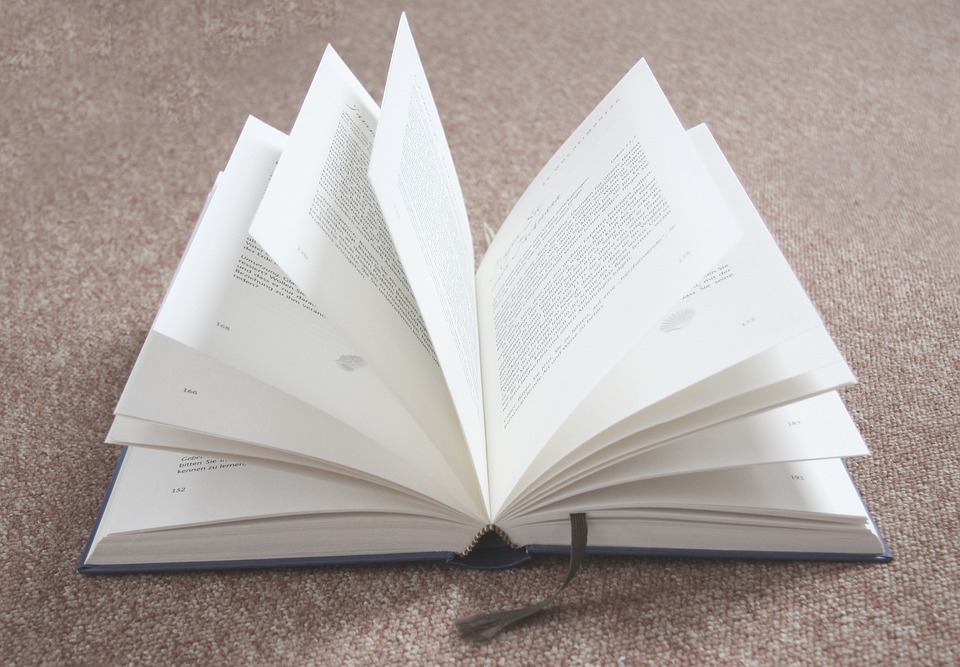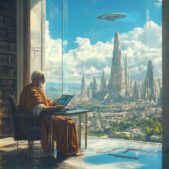Literature after World War I
In the second year of World War II, writer Robert Graves began working on an article for The Listener. “I was asked to explain as ‘writer of the last war’ why so little war poetry had been written in recent times,” Robert mentions in his piece. More than half a century later, it seems equally reasonable to ask why World War I was so much more reflected in English literature than in the literatures of the other belligerents.
From the earliest weeks of the conflict, World War I inspired hundreds of creators to write prose and poetry of all kinds. In fact, it is very difficult to substantiate the fact that in the first six months of the war about three million poems were written in Germany, but Catherine Riley (a British bibliographer) managed to count 2,225 British writers of the First World War, of whom 1,808 were civilian. For example, William Watson (once a popular and now largely forgotten poet) very quickly decided for himself that his poetry must be remembered by the nation in such a light that people would remember him, William Watson, as a folk poet of the crisis period. He authored 16 war poems published in various newspapers in the first few weeks of the war.
The list of “war” poets who wrote in French in Jean Wick’s La Litterature de la Guerre reaches an impressive 18 pages. By 1915, the publication of war novels and personal observations had also been put “on an assembly line. One of the most influential anti-war novels was Henri Barbusse’s Fire, written in 1916, for which the writer was awarded the prestigious Prix Goncourt. It sold 200,000 copies in French alone; an English translation appeared a year later; and it was translated into German in Zurich during the last months of the war. The English writers Siegfried Sassoon and Wilfred Owen were particular admirers of this novel. Vicente Blasco Ibáñez is another representative of the creative shop, his novel The Four Horsemen of the Apocalypse was published in 1916, was translated into English two years later, and after the war ended it became the basis for a beautiful film starring Rudolf Valentino.
It is impossible not to admit that the war of 1914-1918 proved to be more literary than the earlier continental conflict of 1792-1815, although contemporaries are beginning to forget, because of the era, how much has been written about that earlier war. William Matthews in British Autobiography (1955) counts 87 published journals and memoirs authored by military men. Several novels authored by those directly involved in the fighting have also been published, such as The Post-Captain, written in 1806 by John Davis, a model for such writers as Frederick Marryat, Edward Howard, and Frederick Chamier; the literary legacy of those battles also includes hundreds of poetry.
Many believe that the battlefield is not the most fortunate literary space, and despite the fact that the French Revolutions and Napoleonic Wars stretched over a long 23 years, these events cover little more than minor incidents in the works of most writers of those times. This was commonplace not only in Britain, where there was no general military conscription and the war mostly took place only in the pages of periodicals, but also in France, Spain, and Italy. Germany is left out, as the nationalist currents between 1809 and 1814 contributed several novels and a great deal of poetry, which became the basis for the nationalist movement in 1914.
In fact, it is rather difficult to back up the view that popular chauvinism was much more powerful and profound in 1914 than it had been a century earlier, but it is worth noting that at the height of World War I the literary and intellectual climate was in general times more favorable to war literature than in earlier periods. “Tolstoy’s War and Peace, with its many visualized battle scenes and its interweaving of peace-loving concerns and catastrophic war experiences, elicited rapturous feelings on a worldwide scale, rightly being considered one of the best – perhaps the best – novels. Among the writers who felt the influence of this work was Walter Blum, and his trilogy on the Franco-Prussian War was a real bestseller in Germany.
In France, the tradition of naturalism was a defining force in the creation of Barbusse’s Fire; by that time he had already made a name for himself as a neo-naturalist writer. Among British writers, a somewhat different branch of realism, popularized by Thomas Hardy, was the most influential. The degree of war, achieved literally in the blink of an eye by 1914, is no less clearly expressed through colors and painting: among British artists Christopher Nevinson (and Paul Nash through the trendy painting of Paul Cézanne) saw in Italian Futurism an artistic device through which he depicted with particular fierceness the impact of a century of machine confrontations on man and nature.
In contrast, the war of 1939-45 began at a time when many literary and artistic innovations had already completely outlived themselves. Perhaps the most telling factor is that war events, once considered shocking in literature in 1914, have now become something of an everyday occurrence. In 1943 the poet Keith Douglas explained it as follows:
“You can’t have the same Hell twice: we allowed it during the Great War, and it is the same now. Deprivation, pain and sorrow, the struggle of life and the realm of death-all these were so vividly described by the poets of the Great War that every day of the terrible battles on the Western front, and no doubt on the Russian expanse, found its reflection in their works.”
Perhaps the main difference between the literature of 1914-18 and 1939-45 lies in how we perceive those events. As has been said, Catherine Riley has compiled a list of 2,225 British writers of the First World War, but hardly ten of them remain in the memory of contemporaries, and at most ten more of them deserve to be recorded in the annals of history. In Germany and Italy there were a number of writers who enjoyed popularity between the 1920s and 1930s, but were severely censored with the decline of the dictatorship in the 1940s. In both countries, the works of front-line writers such as Ernst Jünger, Werner Bemelburg, Paolo Monelli, and Piero Heyer were a great help in creating the ideological and intellectual climate by which the ideas of fascism spread so widely.
In Germany, students even wrote graduate theses on frontline literature, which resulted in the publication of some fairly notable articles in academic journals such as Zeitschrift fur Deutschkunde and Dichtung und Volkstum. The basis of those papers was a study of the ideological undertones of World War I literature. The main current value of these works is the dual treatment and evaluation of events that belong to the period of Nazism. However, the overthrow of the Nazi regime led to the logical discrediting of writers who advocated military ideals, while writers such as Robert Graves, Siegfried Sassoon, and Erich Maria Remarque, who were proponents of the anti-war position, were certainly on the crest of literary success beginning in 1945.
It is hardly a coincidence that the now-adored World War I poet, Wilfried Owen, did not become popular until the 1960s. The moral timeliness of what writers want to tell us is as important as the methods they use for the hour of their work: we can see a similarly striking example in the later period, as books (and films) about the Vietnam War are much more popular now.
Regarding modernity, there is a clear preference for World War II over the First in the amount written, although the ratio of poetry may be the opposite. The lower number of World War II poems written owes much to the fact that the status of poetry itself underwent some change in the postwar years; however, this change is not the decline of the literary form per se, but the fact that the poets of the early last century largely inherited the example of their predecessors.
Regarding writing in general, World War II literature never enjoyed the privileges of ideological controversy that allowed such figures as Ernst Jünger, Erich Maria Remarque, Robert Graves and Siegfried Sasson to rise to prominence, although some war memoirs were quite good, especially those published in the last 20 years when memories of war were already out of fashion. Regarding prose, perhaps World War II inspired writers of a somewhat higher caliber than writers of World War I, because most mid-century creators already had previous writing experience. Among them are Evelyn Waugh, Norman Mailer, Albert Camus, Heinrich Böll. Also in this line are two Britons, Anthony Powell and Graham Greene, whose works were a peculiar representation of the war experience. But none of the aforementioned six authors was so tightly associated with military themes as Jünger, Remarque, and Sassoon. There is really no objective explanation for this: perhaps it is the case, perhaps it is the conviction of the critics.
But the question of how we see the past is not confined to the theoretical and academic. We live at a time when the events of 1914-1918 help us to make an objective assessment of the incidents in Iraq, Yugoslavia, etc. What they have to tell us, despite all their tragicness and bloodthirstiness, still reverberates with pain in our hearts. World War I ended almost a century ago, but today’s events leave us with no hope for a peaceful and safe future.


